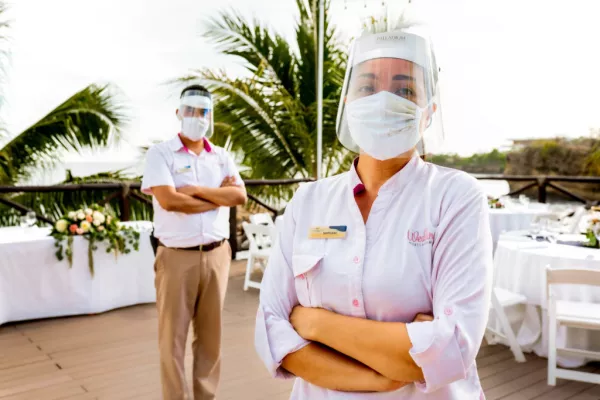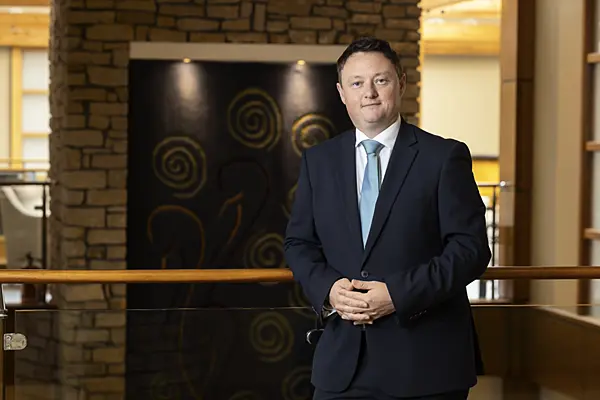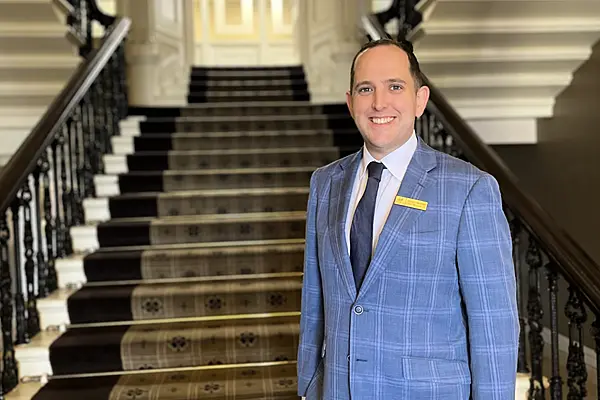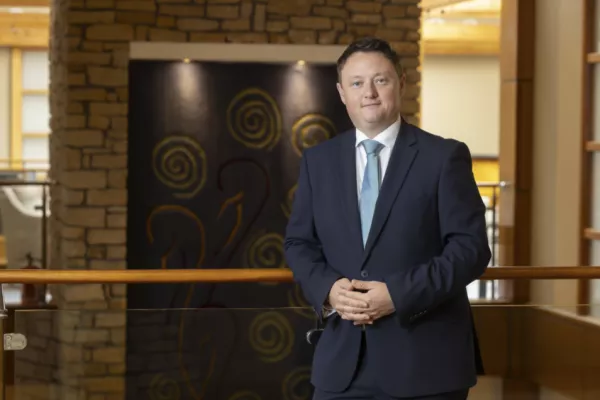The single-greatest asset for most hospitality businesses is their staff. After a most challenging year, Hospitality Ireland talks to three hospitality professionals with specific experience in different aspects of staff and employee engagement, about how their year has been, and what needs to happen next.
This article was originally published in the Spring 2021 issue of Hospitality Ireland Magazine, in April of 2021.
Among the very many difficulties of running a hospitality business over the last year – and something that is likely to be a headache for business owners and managers into the future – is the issue of staff. Staff members, as we all know, are the backbone of the industry – both physically and metaphorically – but after a year of relentless uncertainty, and still without any very clear road map ahead, there is a genuine fear that many experienced staff members may look to move to other industries.
For Niall Rochford, general manager of Ashford Castle, staff members are a significant part of the business’s heritage, brand and ethos.
“Our staff are the reason why guests return to Ashford Castle, time and time again,” Niall says. “Their incredible passion for delivering the highest levels of service in the warmest-possible way was recognised by the Tollman family, who took over Ashford Castle in 2015 – years after they had first visited the Ashford Estate on a family holiday. Now, as employers and owners of the Red Carnation Hotel Group, they continue to value and invest in that irreplaceable sense of hospitality that has been so integral to our heritage and of ‘brand Ashford’ for more than 80 years.
“The extraordinary characters of the castle are passionate about their work and ensuring that every guest has the best experience possible. It is perhaps for this reason that Ashford Castle was, for the second consecutive year, one of a select group of hotels around the world to be included in Forbes Travel Guide’s five-star honours list, which rewards excellence in hospitality. In many ways, this, for me, sums up what our staff mean to the business.”
Ashford Castle, Niall points out, has several generations of the same family working within the estate – something that ensures a particular kind of bond. Has that made the last year even harder?
“We have a very strong loyalty to our staff, many of whom have been working on the Ashford Estate for more than 30 years, and some of whom are secondand even third-generation members of staff. It’s not unusual to have several family members working together on the same shift, and while they are always professional, it makes for a really ial and friendly atmosphere for our guests.
“We know that the team at Ashford are wholly invested in the hotel’s success. It is more than just a job for them. That has made the past year difficult for everyone, particularly when there is still a question mark over when we can open the doors again and welcome guests and staff back.
“The uncertainty has been huge, and that makes it very challenging when you are a general manager and you don’t have answers to all the questions. As everyone will know, GMs love having all the answers! Equally, however, having such deep-rooted and long-standing friendships with the team at Ashford has helped us stay connected. There is a real sense that we are in this together, and the entire team has been excellent in staying in touch and helping us come up with new and exciting ways to make the guest experience at Ashford Castle even better once we reopen our doors.”
So, what has been the hardest thing about COVID, in the context of staffing?
“Staying connected,” he says, “but, at the same time, staying connected has probably been the single-most important thing we could have done for one another. Very early on, we created an employee engagement programme that allowed us to keep in touch during hotel closures. There are 30 staff from 14 countries living on the estate, most of whom have no family in Ireland, and it was really FEATURE important that this group, our extended family, felt involved and cared for.”
What have they been doing at Ashford to try and manage the situation?
“To keep staff connected, and, in keeping with the castle theme, we appointed a ‘king of connections’. Donegal native Nathan Gillespie, who works in our restaurant, together with his connections committee, is responsible for keeping spirits high amid lockdown. All staff have been invited to take part in Facebook Live cooking classes with our executive chefs, wine tastings with our sommeliers, Zumba classes and book clubs, and we have organised plenty of socially distanced outdoor activities. All of these things have really helped us navigate the past 12 months, and they don’t happen without a huge amount of thought and energy from everyone involved.
“We prioritised staff well-being, and we set up a dedicated well-being committee, training five members of staff to become mental-health first-aiders. One of our most impactful initiatives was a talk from one of our team who is a mental-health advocate and spoke openly about her own experiences and coping mechanisms.”
What does he hope will happen next, from a government perspective, that will make the issue of staffing easier?
“It’s important to recognise the support businesses like ours have received from the government, for which we are hugely grateful. Without pandemic payments, the outlook for the hospitality industry, which is already challenging, would be very different, but because of government support, together with the support we have received from our owners, we have been able to retain all of our staff, which is fantastic.
“The extension of supports from the Irish government until June, at the earliest, is critical, and we hope that payments will be extended for as long as is needed by the hospitality industry. Any measure that will help us control costs for the remainder of the year, such as rates waivers, will be important for hotels and restaurants.
“In relation to staffing, we are in a fortunate position at Ashford Castle, in that we are currently recruiting. We believe in investing in the future, and that means investing in people. Sadly, the impact of the pandemic may cause young people to think twice about pursuing a career in hospitality. We would therefore like to see the government support the industry and restore any lost confidence in the sector. Otherwise, we may feel the impact of the pandemic for years to come. A much quicker roll-out of the vaccination process is vital if we are to see any recovery in hospitality this year. Such is the scale of the crisis that tourism budgets need to be doubled, to include business continuity grants, upskilling support and international marketing funds. The latter is vital to allow Ireland to compete on a global stage once the pandemic has passed.”
What are his expectations of Irish hospitality over the next six to 12 months?
“These days, making predictions can be a futile exercise,” he says, wryly, “but I am hopeful that we will get to welcome overseas visitors by the autumn, and once the country opens up, there may well be an avalanche. There is such pent-up demand that I think we are on the edge of a golden age of travel, and Ireland will benefit as much, if not more, than other markets.
“Given the stellar way in which hotels and other providers have handled cancellations and refunds during the pandemic, we are likely to see an increase in direct bookings, possibly at the expense of the online booking agencies. Ultimately, consumers will drive these trends, which will be shaped by their experiences of the past 12 months.”
As for summer 2021, he expects that “will mirror summer 2020 in terms of domestic tourism, however, with the vaccine roll-out well under way, we can face into the season with a lot more hope and optimism. The response from the Irish market has far exceeded our expectations, and we are extremely grateful for the support we received from both regular guests and those visiting, and – not for the first time – we cannot wait to open our doors once again.”
For the Palladium Hotel Group – which includes 48 hotels and more than 14,000 rooms in six countries, under ten brands, and was certified as a top employer in 2021 by the Top Employers Institute – the greatest challenge, according to Juan Apresa, corporate talent management senior director, “is the uncertainty over travel rules and restrictions. We have had to close our hotels at very short notice, in response to national lockdowns in our key source markets, and this has made planning resources very difficult. We operate in six different countries – Spain, Italy, Jamaica, Mexico, Brazil and the Dominican Republic – so keeping up to date with the latest regulations in each country has also been important, to ensure that our staff are receiving the required support, according to the latest advice in their country. Of course, we have put in place a number of new health-andsafety measures in our properties, and we are able to respond quickly to new measures and regulations.
“We have learnt a great deal in 2020,” Apresa continues, “and we feel optimistic that the vaccine is being rolled out in Ireland, the UK and in Spain, so restrictions can be relaxed and travel can resume. We believe the travelling public is very resilient, and we know there is a huge amount of demand for holidays to both the Balearic Islands and the Canary Islands. Given the proximity of the islands, the Ireland flight connections, the infrastructure and the knowledge of the destination, we feel very confident that we will have a positive summer season.”
How has Palladium managed to continue as a good employer during the COVID pandemic?
“Since the beginning of the pandemic, the health and well-being of our staff has been the top priority. We believe that good employers are those that provide support to each individual through regular check-ins and allow our staff to express any concerns that they may have. At Palladium Hotel Group, we have provided up-to-date communications throughout the pandemic, stating the facts and how we can adapt and overcome the issues that we have been faced with. To ensure the health and safety of our staff and our guests alike, we have partnered with SGS, the world’s leading entity in the sector for certification and implementation, to create a new safety-and-welfare protocol, which includes specific training for our staff to keep their working environment safe.
“Our certification as a top employer – and the first hotel chain with the certification in every geographical location where it operates – highlights our commitment to our staff and is a real accolade after such a challenging year. The certification recognises our human resources policies, organisational culture, and excellent people practices.”
What has Palladium found is the best way to manage the scaling-up and -back of employee numbers at a time like this?
“Clear communication with our staff has been paramount, to ensure staff understand the situation and the difficulties in long-term planning. We have been fortunate to be able to take advantage of government schemes in each destination where our hotels operate, to ensure that our staff are supported if their working hours have been reduced, or that they have a source of income while hotels are closed.”
Apresa cites the following, to ensure the continued loyalty of employees at such a time, saying, “Clear and honest communication, boost employee engagement, recognise and appreciate the work that they have done so far, listen to employees and arrange regular checkins, investment in training and development, encourage teamwork.”
He also cites the importance of communication, saying, “Keeping in touch with our employees is important to Palladium Hotel Group during this difficult time. We believe that honest, clear and frequent communication with our staff is important, as well as prioritising their well-being by being empathic and listening to each individual.”
Then there is the other side of the staffing equation – the companies that provide experienced staff members, often on a short-term or seasonal basis. For Hannah Wrixon, who started Get the Shifts – a platform that matches hospitality businesses with experienced temporary staff members – the last year “has been one of the most challenging, stressful, productive, interesting and exciting years I have ever had in business. In January 2020, we had already pre-booked more work for the year than we had done in 2019 – it was looking like our best year ever. We were heading to the UK for our first trade show, and plans were afoot to secure the necessary funding to scale this business quickly. In March, our business just stopped. Our primary business is to provide temporary support staff to the hospitality sector, so the restrictions around COVID-19 have had a huge impact on our business.
“All of our staff except our operations manager were temporarily laid off,” Wrixon says. “We reached out to our local enterprise office, and we received a huge amount of support, from mentoring to funding and training. We spent the 12 months revisiting all processes and procedures, and auditing our software.”
So, what changes has she made that have had a positive impact?
“We sourced a new development house and have created and released innovative and exciting software, which enables clients to source and book suitable staff for shifts that they have available. The software also allows our clients to view their shifts filling in real time, contact their booked workers, rate staff, and verify the hours.”
“Our ‘superstars’ [workers] can use the app to set their skills [validated by recruiters], complete training, set their location, and accept shifts. They can also check in and out via GPS, rate their shifts, and manage their earnings. Superstars can also confirm their COVID-19 status through the app. The software allows for a seamless service for our clients and opens flexible working opportunities for our superstars.”
What does Wrixon see as the major staffing issues for the hospitality industry in the next six to 12 months?
“I think the PUP [payment] will affect the numbers of people who are available for work, and, in addition to that, many hospitality workers have retrained in different industries, so that they have been able to secure work throughout the pandemic. I think that the country will reopen quite quickly when the vaccinations are rolled out, so I think hospitality businesses will struggle for staff. That is where we come in. We still have hundreds of trained and experienced staff who are available for work when needed.”
In the meantime, what can hospitality businesses do now to have a positive impact on issues of staffing?
“The most important lesson that we have learned is to keep talking to your people. You want to stay as the numberone work choice for your staff. There will be competition for staff, but the little things do count. Send a card, organise a team Zoom or a treat – it does not need to be expensive, but gestures count. They build loyalty, and the soft add-ons will differentiate you from another, potential employer.”
Finally, in what ways does Wrixon see technology being of benefit to the industry when it comes to recruitment and staffing?
“The technology that we have developed has revolutionised our business. From the first contact, our potential superstars are brought through the recruitment and training journey quickly and efficiently. Their interviews and references are conducted by our recruiters, and once they are ‘active’ on our app, they begin to be offered shifts/jobs that suit their skills. We recognise that staff breakdowns do not usually happen nine to five, so, with an app like the one that Get the Shifts has developed, staff can be accessed 24/7, from the comfort of a phone.”
Staffing, Wrixon points out, “will always be an issue in the hospitality sector, but with the launch of this technology, this issue will become manageable, and clients will have the peace of mind to be able to get on with the important job of running their businesses.”
A wise person once wrote, ‘Thy staff, they comfort me,’ and at no time since has this been truer in the hospitality industry.
Read More: Hospitality Ireland Spring 2021: Read The Latest Issue Online!









